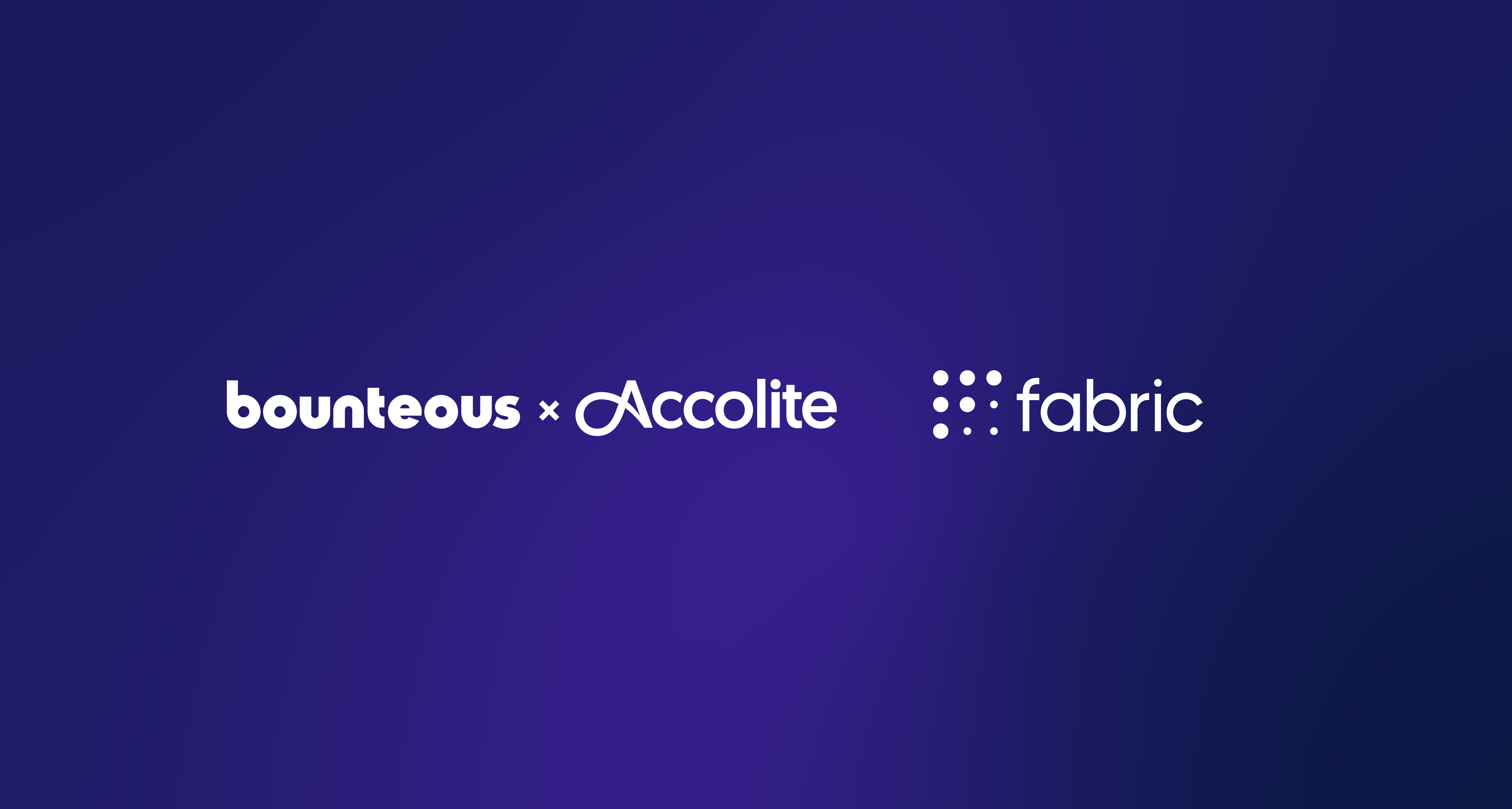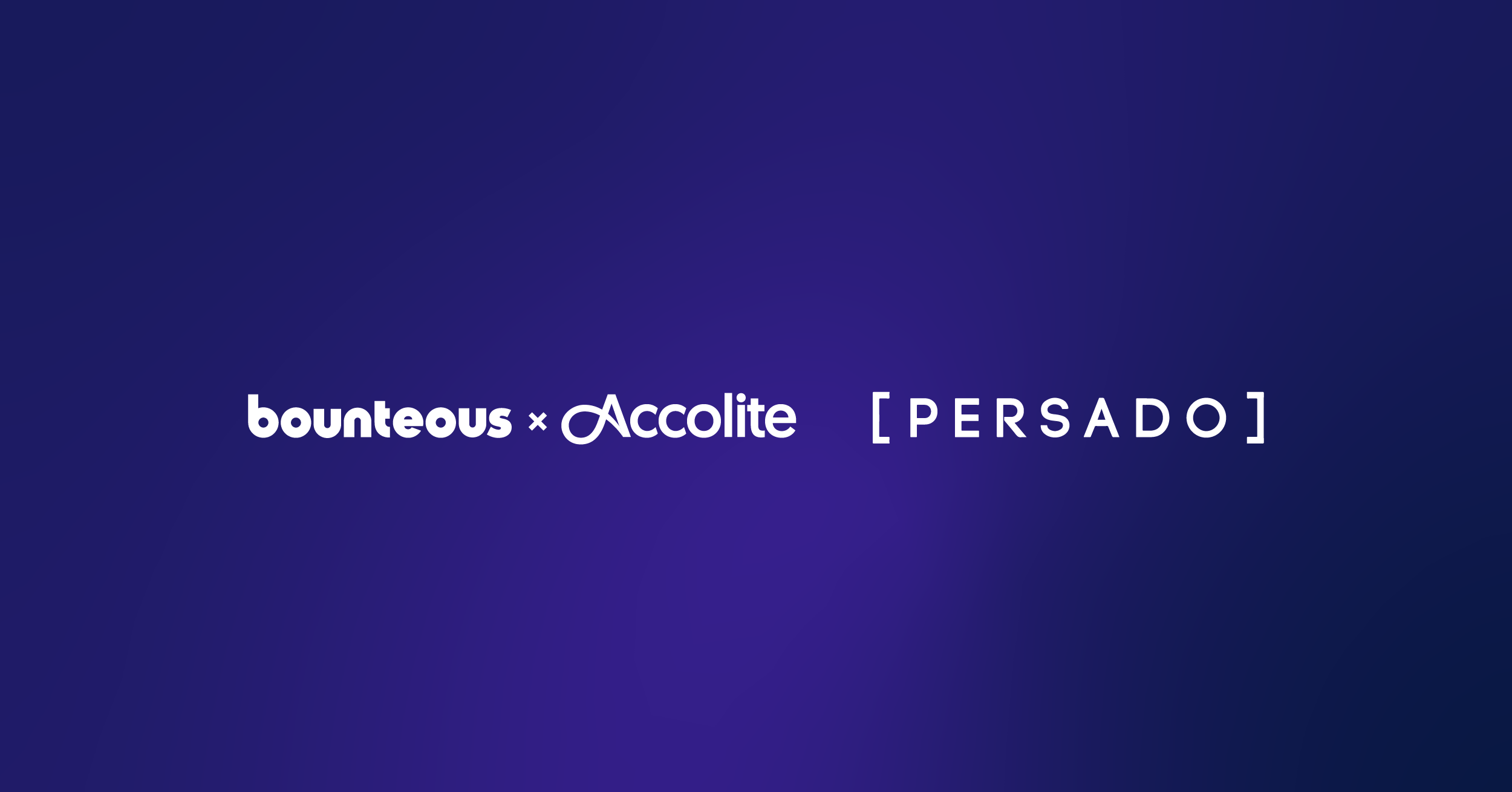The 5 Most Asked PPC Questions At A LunaMetrics AdWords Training
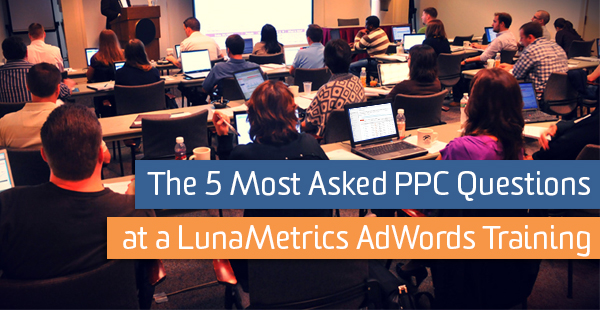
While Google AdWords is a terrific platform for getting your advertising message in front of the right audience, it can take years to master. That’s why we offer our Google AdWords Training courses. The sessions are a terrific opportunity to get your questions answered and learn everything you need to know to maximize your ad spend and generate revenue for your business.
It doesn’t matter if you are brand new to pay-per-click advertising or a seasoned pro, you will learn about strategies and settings to help you maximize your account. Every training is unique as attendees work in different industries and have different business models. We really try to speak to specific examples in attendees’ accounts and industries.
Fortunately, our trainers have years of experience managing AdWords accounts for a wide variety of business types and actively work on accounts in addition to providing training, so you can be sure the recommendations you receive are time-tested.
However, some questions come up during each training session, and rightly so, as PPC advertising isn’t cut and dry. As I look forward to my next training (2 weeks away in Los Angeles!) I thought it might be helpful to review some common questions.
1. Is AdWords Right For My Business?
AdWords can be an effective use of your marketing budget for all types of businesses. Do you work in a long lead cycle and need new sign-ups or registrations? Do you provide a service to a specific geographic area? Does your company sell industry-specific enterprise software? Are you a local pizzeria?
All of these business models could benefit from AdWords’ ability to lower your cost-per-lead and drive qualified traffic to your website.
How it works:

2. How Do I Choose The Right Keywords?
The entire AdWords Search PPC system is designed around displaying your ad when a user searches for a specific term. For example, we might want the ad for our fictional theme park below to trigger and show when someone searches for the words Florida theme parks. When the ad is clicked on, our account will be billed a per-click cost.

In order to find search volume for keywords like “Florida theme parks” and other related terms, we do keyword research! We start by brainstorming various phrases and words that relate to our business with the Marketing team. Then we can run those keywords through a variety of programs to find out how much search interest exists around those terms, and roughly how much we may have to pay if those terms trigger an ad click.
AdWords Keyword Planner, SpyFu and Ubersuggest are a few of the most popular tools to get you started.
3. Seriously Though, What Are These Match Types About?
Just having the keywords isn’t enough. You can control their exposure to searches using match types. These are additional keyword settings that narrow or broaden the search terms triggering your ad. Match types are critical in setting up a profitable account.
Broad match, Phrase Match and Exact Match all control how your ad will display based on the user’s search.
Broad Match is the shotgun approach that reaches the largest possible audience (even related search terms).
Exact Match lasers in on only the keyword you specify.
Negative Keywords allow you to specify terms that you do not want triggering your ad, like the name of a competitor or an acronym that may have many meanings.
This chart gives you a quick idea of how match types effect an advertiser who wants to show ads when users search for women’s hats:
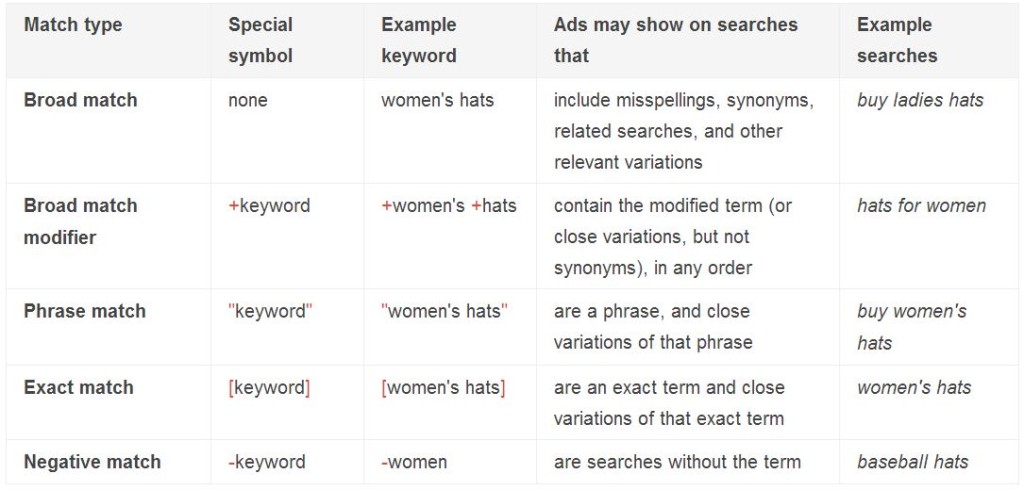
Google provides a short & sweet walk-through about match types:
4. Did I Structure My Account Correctly?
A well-structured AdWords account gives you better control of your budget, makes management easier, and provides the maximum targeting opportunities of your keywords. But let’s back up. AdWords accounts contain Campaigns > Ad Groups > Ads & Keywords.
Once you’ve completed keyword research, organize your keywords into tightly-themed groups, these will become your Campaigns (Example: “AdWords Training”). Each Campaign contains Ad Groups that are smaller breakdowns (like “AdWords Seminars”, “AdWords Workshops”, “AdWords Training Company”). Then each of those Ad Groups will contain Ads and Keywords.
It will look something like this:
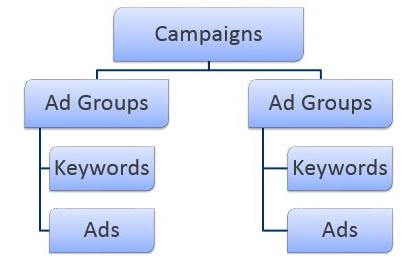
It’s considered a best practice to break your Campaigns and Ad Groups down into themed groups based on your business model. Unfortunately, this isn’t usually a right or wrong situation. It needs to make sense to your particular business!
Need help with this? Look at your website navigation! Below we can see that I may want to have a Campaign called “Training” and a separate Ad Group for each of the training options:

5. Should I Target Mobile?
If you are using the Search network in Google AdWords, you ARE targeting mobile by default. But there are many factors involved in deciding whether or not you really should be targeting mobile users with paid ads.
Ask yourself the following questions:
- Is your website mobile-friendly?
- Can a user complete a sign-up or transaction easily on a mobile device?
- Are these users worth more or less to you than a desktop user?
If so, then go for it! There are even mobile-specific sitelinks that you can use, including ones that display a click-to-call button on mobile phones viewing your ad!
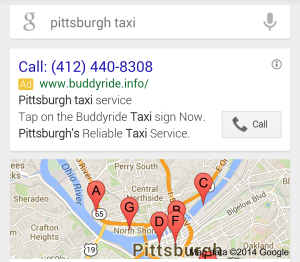
Very commonly, advertisers will want to opt out of mobile targeting for business reasons. There’s no option to check in AdWords to prevent ads from displaying on mobile, but if you use a Device Bid Adjustment set to -100%, you are effectively not bidding on mobile ad placements.
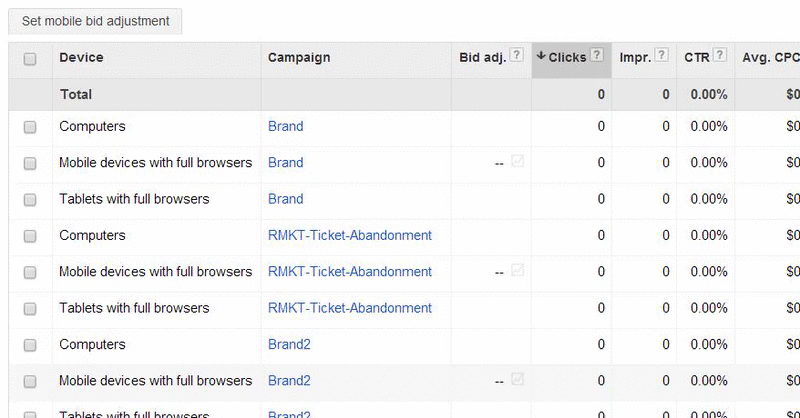
These commonly asked questions are just some of the topics we review in our AdWords 101 course. In that first day, we focus on building your account and your message. AdWords 201 takes a deep dive into account settings for granular fine-tuning and maximum profitability.
Do you have any questions you’d like an AdWords expert to answer? There’s a comment box below.

